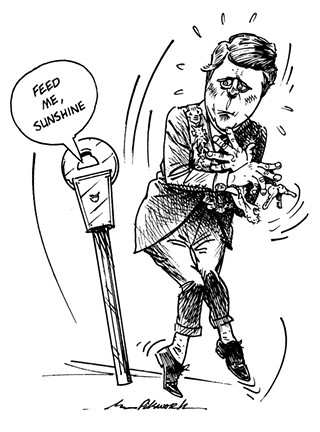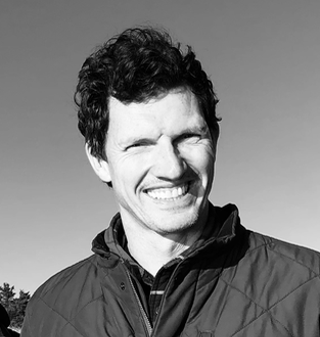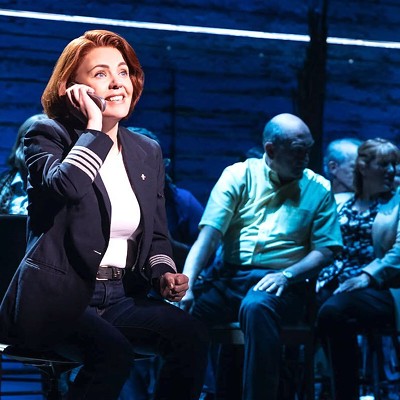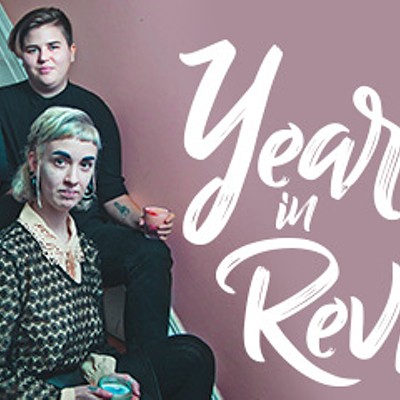While you were off enjoying your summer, the citykept busy. There have been changes ranging from the unveiling of the beautiful "North is Freedom" statue at the North Branch Library, to the dubious installation of a bunch of surveillance cameras on downtown streets. There were plenty of visitors, coming to gawk during the Tall Ships festival, or protest during the Atlantica trade zone meetings or just to soak in our east coast hospitality schtick. And mayor Peter Kelly became a laughing stock: With delusions of being a concert promoter, he fucked up negotiations for a variety of big-name acts to play on the Common. Best of all, however, is that in the middle of August cars were banned from parking on the courtyard in front of City Hall. Grand Parade is free.
If you're a frosh or have another excuse for being brand-new to Halifax, you must be wondering what I'm talking about. The Grand Parade you know—the inviting open space you doubtless wandered through while exploring downtown—is such a perfect public square, you can't imagine anyone using it for a parking lot. It's got those majestic lines of towering elm, linden and chestnut trees. It has views of every icon that defines Halifax: the Citadel Hill clock, the harbour, the LiquorDome. There's even the plaque that explains in proud metal type, "This has been the central gathering place of our people since the founding of Halifax in 1749." Could our people be stupid enough to defile Grand Parade with cars?
Alas, gentle reader, they could. Such is the wisdom of our city governors that they allowed—even fought for—the parking privilege for decades. Whenever proposals to move the cars came before city council, the councillors voted them down or simply deferred the decision for some time in the future. These tactics let council keep the Grand Parkade for 20 years.
Finally, a sweeping report arrived at a council meeting last February. The report, prepared by city staffer Andy Fillmore, suggested a host of changes to help the ongoing vitalization of Halifax's urban core. Key among these was to return Grand Parade to its intended use as the public heart of the city, and stop using it as a fucking parking lot for commuter councillors and their stupid minivans (I'm paraphrasing).
During the debate on the report's recommendations, it became clear most councillors were ready to do the right thing. Then, as parking went into its death throes, the wily minority of council successfully used the deferring trick. Instead of giving Grand Parade back to the public by April 1, as the report advised, the deadline was pushed off to September 1.
Maybe they thought the date would never arrive. But on an August day with little fanfare, a fence went across the driveway and more benches were put out, and the public responded immediately. Andy Fillmore happened to be on vacation when the change was made, and it wasn't at the top of his mind while he walked to work on his first day back. "I had my head in the clouds," he says, as he started through Grand Parade. "Then I looked around, and there were people on all the benches." With that a 258-year-old Haligonian ritual is restored—its rude interruption easily forgotten.
As for the councillors and city executives who "lost" "their" parking spaces, fret not. We won't see mayor Kelly sullying the remaining dignity of his office by digging for change for a meter, at least not near City Hall. Councillors have a nice new parking lot, which was getting outfitted with lights and five security cameras when I visited last week. It's across the street—literally—from Grand Parade.
In February, arguing about returning Grand Parade to the public, councillors were told the alternative was a mere stone's throw away. This Tuesday, they will see exactly what they were fighting over at council's first meeting since the parking change. That's a short walk for councillors, a giant leap for Halifax.





















